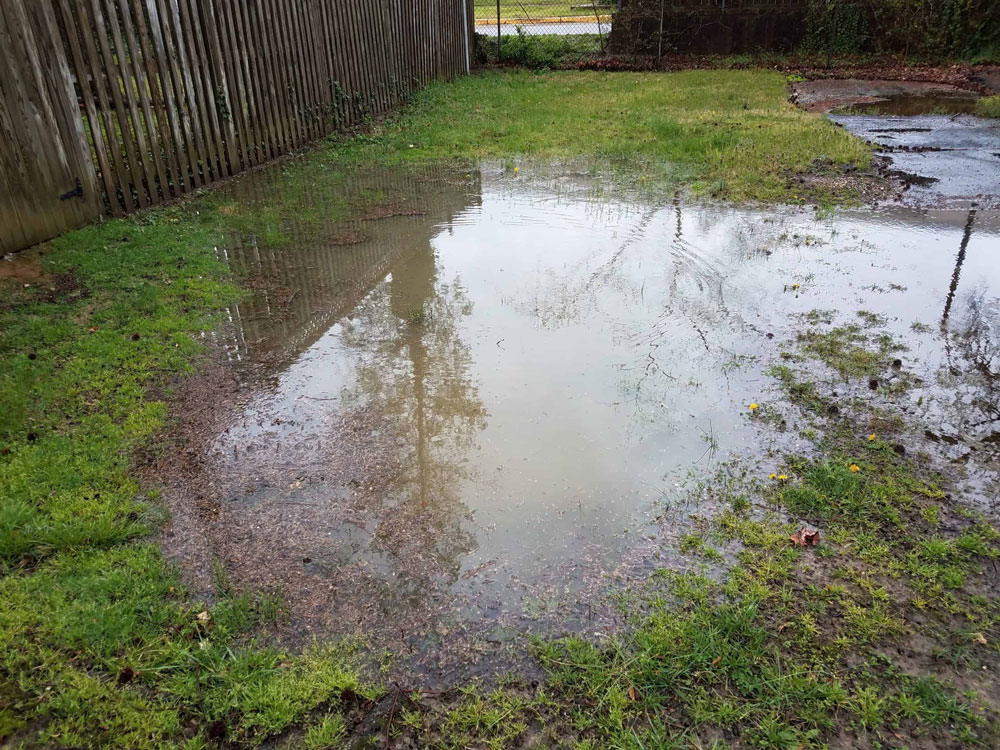WE NOT ONLY PUMP YOUR TANK - WE CLEAN IT! Free Septic System Inspection ($99 Value) Free enzyme treatment , Financing Available
Call Septic Blue Now 813-355-9188
It's Easier Schedule Online
WE NOT ONLY PUMP YOUR TANK - WE CLEAN IT! Free Septic System Inspection ($99 Value) Free enzyme treatment , Financing Available
Call Septic Blue Now 813-355-9188
It's Easier Schedule Online

If you've ever noticed that your septic system seems to struggle after a heavy rain, you're not alone. Septic systems back up when the soil is waterlogged, a real headache for homeowners. Systems usually work fine, but a big storm can cause trouble. Regular septic pumping and cleaning from a trusted provider like Septic Blue of Tampa can help keep your system working smoothly, even during stormy weather.
Your septic system is designed to manage wastewater efficiently, but it depends on the soil to absorb and filter that water. When it rains heavily, the ground surrounding your drain field can become saturated. This leaves little to no space for additional wastewater to be absorbed, causing backups into your home. Instead of flowing through the drain field, water may sit on the surface or even push back into your plumbing, leading to slow drains, foul odors, and potential overflows.
A drain field is crucial for filtering and dispersing wastewater. When it rains heavily, the soil becomes waterlogged, preventing proper drainage. This leads to backups because the wastewater has nowhere to go.
Rain only worsens matters if your drain field is already struggling due to compacted soil, grease buildup, or tree root intrusion. A neglected system may not recover quickly from excessive moisture, resulting in prolonged backups.
Without routine septic pumping, solid waste builds up inside your tank. When a storm hits, additional water entering the system can stir up solids, causing clogs and overflows. Regular septic cleaning ensures your tank remains at an optimal level and functions appropriately.
Aging or damaged pipes can let rainwater seep into your septic system, overloading it beyond capacity. Even minor cracks in your system’s pipes can become significant when combined with excessive rainfall.
The holidays are all about good food, family visits, and…
Read More+When it rains a lot, your yard might flood, the…
Read More+When you live in a home with a septic system,…
Read More+If your septic system was installed in an area with poor drainage or low-lying land, heavy rain will naturally cause more problems. A well-planned system should be placed where water can properly disperse without pooling or backing up.
One of the best ways to prevent backups is to have routine septic service from a reliable septic company. Regular maintenance keeps your tank from getting too full and reduces the risk of backups during rainy weather.
Avoid parking vehicles or placing heavy structures over your drain field. Compacted soil makes it harder for wastewater to disperse, leading to backups. Also, redirect rainwater runoff away from the drain field to prevent oversaturation.
Even small leaks from faucets, toilets, or pipes can add unnecessary water to your septic system. This extra water can push your system beyond its limits during heavy rains. Regular plumbing maintenance helps reduce strain on your septic system.
If you experience frequent septic issues when it rains, upgrading to a more efficient system might be time. A professional septic company in Dade City, FL can assess your setup and recommend improvements to keep your system working efficiently.
Take action quickly if you notice slow drains, bad smells, or sewage backups during heavy rains. Avoid using too much water, and call a trusted septic service provider immediately. Ignoring the issue can lead to more significant problems, including costly repairs and potential health hazards.
Don’t wait until a storm causes a messy and expensive backup. Regular septic pumping and cleaning are essential to keeping your system in top shape year-round. If you’re experiencing issues, contact a professional septic company to inspect your system and ensure it’s prepared for the next big rainstorm. A little maintenance now can save you from major headaches later!